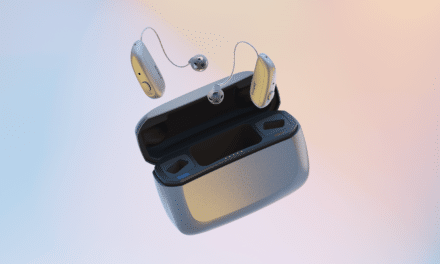February 20, 2008
Washington, D.C.—Miss America 2005 Deidre Downs will serve as The Better Hearing Institute’s (BHI) newest national spokesperson to promote the diagnosis and treatment of hearing loss among children throughout the United States, BHI Executive Director Sergei Kochkin, PhD, announced.
“As a pediatrician-in-training and a successful woman who has had to overcome a hearing loss since childhood, Deidre has a special interest in helping children with hearing loss,” Kochkin said “We are honored that she has agreed to be a BHI spokesperson.”
A recent BHI national study found that an estimated 1.4 million youth under the age of 18 have hearing loss, but only 12% wear hearing devices. Untreated hearing loss among young people has been shown to lead to social, emotional, behavioral, and learning difficulties.
Born with a hearing loss, Downs attributes improved hearing technology solutions with changing her life. She says: “I’m hearing sounds the way people with normal hearing hear. It’s been an unbelievable life change for me, my family, and my friends. I know first-hand the challenges people with hearing loss face and that is why I am so delighted to work with the Better Hearing Institute to educate people to recognize hearing loss and take advantage of the remarkable new technology available to help treat it.”
A native of Alabama, Downs’ hearing loss is genetic. Both her father and brother suffer from hearing loss. She was tested before starting school and began wearing hearing aids at age 5.
“Hearing loss affected me dramatically as a child,” she recalls. “I began wearing hearing aids in kindergarten, but I was very self-conscious about them. Yet when I didn’t wear them, I felt a different type of social isolation because I had trouble following conversations.”
Downs says her goal is to help children avoid the struggles that she had to face as a child. “My goal is to ensure that every parent understands the importance of their children hearing normally, and will support and advocate for their children’s use of hearing aids rather than having to struggle with what I faced — the insecurity, the fear, the exhaustion from extra effort.”
Now that she is in medical school, Downs says, her hearing aids are indispensable. “They will help me to be the best doctor I can be for my patients,” she says.
Downs encourages those living with untreated hearing loss to “see your hearing health professional, ask for the right solution and be an active participant in your life again.”
“Deidre Downs is living proof that the stigma of hearing loss should not be a barrier to proper diagnosis and treatment,” says Kochkin, a nationally recognized expert on hearing loss and hearing solutions. “Hearing loss can occur at any age, but it affects the quality of life for all affected, including families and co-workers. Hearing loss can be treated effectively and the first step is proper diagnosis.”
According to the BHI study, three out of four parents surveyed indicated their child experienced "minor" to "serious" problems due to their hearing loss, says Kochkin. The most serious problems were:
• Social skills (52%)
• Language development (51%)
• Grades in school (50%)
• Emotional health (42%)
• Relationships with peers (38%)
• Self-esteem (37%)
• Relationships with family (36%).
Source: Better Hearing Institute




